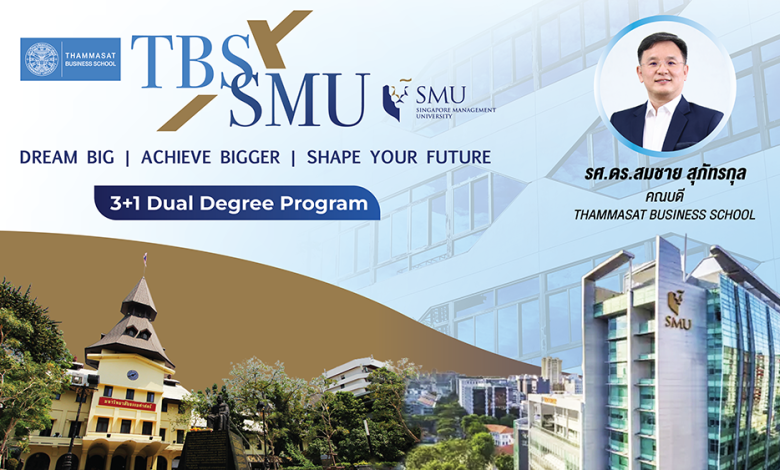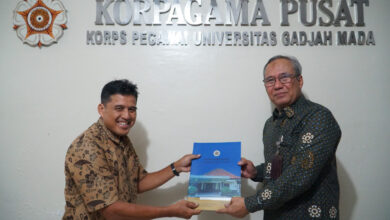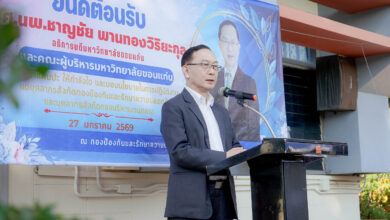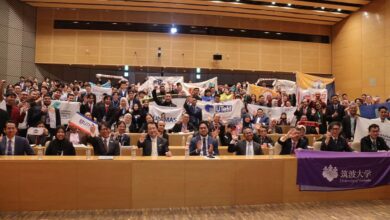Top ASEAN Business Schools Collaborate to Launch Thailand’s First 3+1 Dual Degree Program

Two leading business schools in ASEAN, Thammasat Business School (TBS) and Singapore Management University (SMU) have joined forces to launch the magnificent 3+1 Dual Degree Program, marking a first for Thailand.
This significant collaboration was formalized with a Memorandum of Understanding (MOU) signed by Associate Professor Dr. Somchai Supattarakul, Dean of Thammasat Business School, and Associate Professor Dr. Themin Suwardy, Associate Provost (PGP Education) of SMU, at Singapore Management University in Singapore. The TBS x SMU 3+1 Dual Degree Program represents an educational innovation in business administration, aiming to cultivate future leaders poised to drive sustainable business in the ASEAN region.
The TBS x SMU 3+1 Dual Degree Program offers students the opportunity to develop their knowledge and skills over four years. The first three years will be spent at TBS in Thailand, while the final year will be at SMU in Singapore. Upon completion, students will earn a bachelor’s degree from TBS and a master’s degree from SMU. This program integrates the expertise of two top ASEAN business schools, both of which are Triple Crown Business Schools, accredited by AACSB (Association to Advance Collegiate Schools of Business) from the USA, EQUIS (EFMD Quality Improvement System) from the EU, and AMBA (Association of MBAs) from the UK. Only about 100 business schools worldwide hold this prestigious Triple Crown status, representing approximately 1% of the 10,000 business schools globally.
Associate Professor Dr. Somchai Supattarakul, Dean of Thammasat Business School, stated, “The TBS x SMU 3+1 Dual Degree Program is a tangible academic collaboration between two top Triple Crown Business Schools. Combining TBS’s strong and distinctive undergraduate programs with SMU’s diverse and cutting-edge master’s programs, this initiative will nurture future leaders who will shape sustainable business directions in the ASEAN region, aligning with Thammasat Business School’s vision.”
The program is open to TBS undergraduate students from every academic program, including those in accounting and business administration, whether in Thai or international programs (BBA International Program) and Integrated Bachelor’s and Master’s Programs (IBMP). Selected students will follow an intensive three-year curriculum at TBS before choosing from five master’s programs at SMU for their final year, with opportunities for internships or work in Singapore.
The first two master’s programs are from the SMU School of Accountancy: the Master of Professional Accounting (MPA), the most accredited accounting master’s program in Singapore, and the Master of Science in Accounting (Data & Analytics) (MSA), Asia’s first program blending accounting, finance, and data analytics with practical project experience through the SMU-X Experience.
The other three programs are from the SMU Lee Kong Chian School of Business: the MSc in Applied Finance (MAF), ranked 5th in Asia and 40th globally, specializing in Fintech, fund management, and real estate; the MSc in Quantitative Finance (MQF), an academic program partnered with the Global Association of Risk Professionals (GARP), offering dual degrees with Bayes Business School (City, University of London) which specialize in financial data science, algorithmic trading, or risk analysis; and the MSc in Entrepreneurship and Innovation (MEI), academic program designed for starting and scaling businesses, with access to SMU’s business innovation programs and international learning opportunities at University College London.




